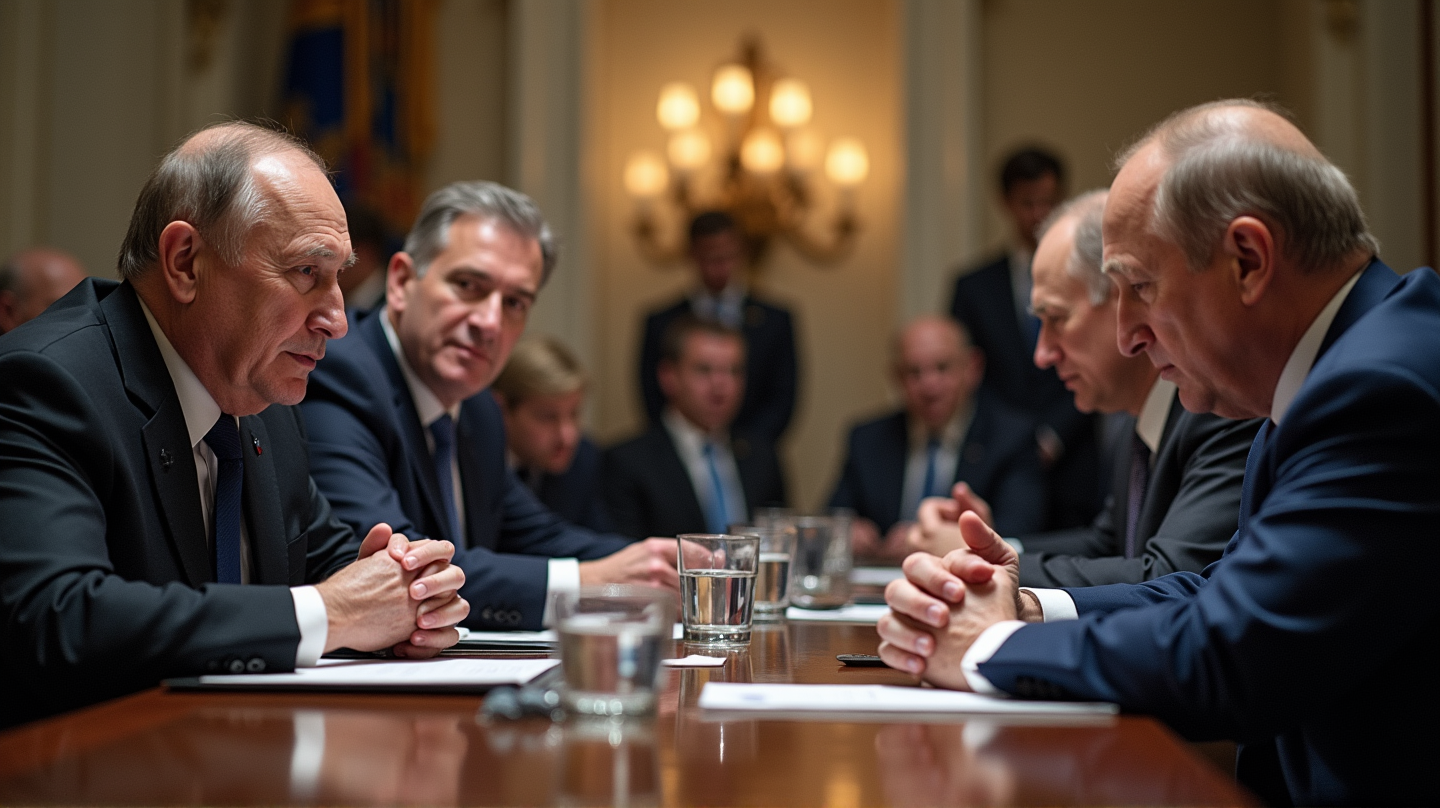The unfolding geopolitical saga took an unexpected turn when former US President Donald Trump expressed growing pessimism about ending the Ukraine war. As diplomatic tensions escalate, Trump suggests that Russia’s strategic allegiance has shifted towards what he describes as the “deepest, darkest” alliance with China. This revelation comes amidst a swirling cloud of speculation and underscores a broader narrative of shifting power dynamics.
Unraveling Tensions: Putin’s Paradoxical Proposals
In a move seen by many as mere rhetoric, Russian President Vladimir Putin extended an invitation to Ukrainian President Volodymyr Zelenskyy for peace talks in Moscow—a gesture Zelenskyy is unlikely to entertain. This unexpected proposal came in the same breath as Putin’s stern warning that any foreign troops in Ukraine, perceived as peacekeepers, would be considered legitimate targets by Russia.
Macron’s Coalition: A Pledge of Power
The international scene witnessed a bold proclamation by French President Emmanuel Macron, declaring that 26 countries have committed to dispatching troops to Ukraine to ensure post-war security. Macron’s call to arms suggests a formidable coalition that seeks to deter Russian aggression through a united front, but it also intensifies the delicate balance of international relations.
China’s Energy Dance with Russia
Amidst the military and diplomatic dialogue, economic ties are also in play. Vladimir Putin’s visit to Beijing highlighted the burgeoning energy alliance between Russia and China. With the Power of Siberia 2 pipeline on the horizon, economic interdependence grows—a fact underscored by recent announcements from Russian media, despite lingering uncertainty over pricing agreements.
Putin described the potential gas supply to China as a strategic advantage, likening their burgeoning trade relations to a symphony of mutual satisfaction, ensuring Moscow’s economic buoyancy as Western markets remain fraught.
Zelenskyy’s Diplomatic Dilemmas
Meanwhile, on the diplomatic front, President Zelenskyy engaged in substantial discussions with Slovakia’s Prime Minister, Robert Fico. Slovakia, still heavily reliant on Russian gas, has seen criticisms stack against its government for recent interactions with China. These engagements underscore a geopolitical tension between energy dependency and European unity.
Rebranding American Might: The ‘Department of War’
In another controversial development, Trump announced a proposed rebranding of the US Department of Defence to the ‘Department of War.’ This bold administrative shift, outlined in an executive order, gestures towards a more aggressive and militaristic posture. Such a move rekindles debates over America’s role in global conflicts, hinted at by the staggering $134.5 billion spent on Ukraine since the Russian invasion began, as tracked by the Kiel Institute in Germany.
An Economic Tug-of-War
Simultaneously, Vladimir Putin faces internal economic challenges, with reports from Russia’s own central bank suggesting an impending recession. While Moscow battles stabilization efforts, using high interest rates as a tool of economic stay, the challenges of sustaining military campaigns loom large.
According to Sky News, such complex dynamics of international allegiance, energy partnerships, and military posturing reveal an intricate tapestry that shapes the ongoing global narrative. As diplomatic efforts waver, the future of peace remains ever elusive.
